#but also accepting of LGBT+ identities and gay marriage
Note
It upsets me how asexuality became mainstream and accepted in a decade. I wish it didn't, but it does. Aces became a protected class in NY before trans people. In only a decade ace characters started popping on mainstream media. Asexuality became a topic of conversation in mainstream news and academia. It took centuries for LGBT people and we're still not seated at the table. Why? How did this happen? Is it bc the cissexist, heterosexist, ableist, white patriarchy isn't threatened by asexuality?
I don't know if I hate that it has become mainstream and accepted. I don't think that's the problem.
I think it is good for all types of experiences nad identities to be represented and I think it is good to push back romance and sex as the end all, be all of human experience and provide other perspectives. I think it's good to tighten up laws to avoid any prejudice, even if that prejudice isn't happening regularly. I think there are a lot of non-ace and non-aro peopel who ALSO benefit from a lot of these considerations--lots of romantic loveless, sexless people who are perpetually single or more interested in other things or whatever who also get rep.
This also does challenge the nuclear family construction. As more people forgo marriage or typical family units, showing more ways to live is ALWAYS good. Creating more legal considerations for say... people outside of romantic relationships who want to adopt or own property or rent or whaevr is great!
I just think the haste in which asexuality got acceptance (INCLUDING a lot of harmful elements of the ace community like the split attraction model and rhetoric that you can enjoy sex without attraction in a longterm relationship) just sort of highlights the point I have been making this entire time--asexuality is not discriminated against in any meaningful way.
And I think asexuality and aromanticism do tend to fit into the largely white, (culturally) christian societal norms.
We live in a society that shames sex, that wants sex to either sell shit (which isn't about the sexual object feeling atttraction, just having people being attracted to THEM) or for children (so, again, no sexual attraction required) or for outrage/shock (which... again no attraction needed). Throwing in sexless rep wasn't... a shift?
There are lots nad lots and LOTS of sexless characters in media and there always have been. We can now just slap a label on them and it counts as diverse rep. Which IS less threatening than having like... horny (or even textually sexless) gay rep. Or trans rep.
And legally... "protecting" ace people requires... almost zero shift in like... any behaviour. If there was no massive form of legal prejudice (and there asn't, there has been little to no documented LEGAL discrimination against asexuality), there's no... people to pushback against asexuals becoming a protected class.
Asexual representation--in media, in the law--is an easy slamdunk. Because... there is no powerful discriminatory class to say no.
And it's also because most discrimination people class as "aphobia" really has no basis in asexuality and is broader social concerns like... mostly misogyny. So, when you have these legal protects for the ace part, all the bad behaviour that aces are concerned about still gets to happen to everyone else and probably still quite a few aces.
No change is actually required.
#ive said it amny times#i think if the ace community teamed up with feminists#and like.. got over themselves#they'dbe a GREAT force to combat rape culture#unfortunately#aces would rather contribute to rape culture than fight it#w hich sucks but i'm not wrong#ace discourse
100 notes
·
View notes
Text
Choosing Sides: Life as an LGBT Muslim in America
Written By: Salamatullah Eldritch

In 2017, in the Twin Cities, the Twin Cities Pride Parade fell on the same day as Eid al-Fitr. Eid al-Fitr is the celebration and feast at the end of Ramadan, the month of fasting in Islam. It was something at first, I loved because two massive parts of my identity were being celebrated on the same day. My fellow LGBT hijabi and niqabi friends were elated as well that Eid fell during pride month.
The joy lasted for me until I realized I actually had to choose. I had to choose whether to attend the Pride event, or whether to celebrate Eid. I had to choose whether I wanted to surround myself with the Muslim community, or the LGBT community.
When faced with two coinciding events, many people might choose to go to both, spend part of the time at one, then the rest as the other. Such a thought didn’t even cross my mind, Eid al-Fitr and Twin Cities Pride felt like polar opposites in my head. It wasn’t as though I could show up to a mosque in body glitter and decked out in rainbow flags, that’s the part that is easiest for people to understand. What they don’t understand as well is that I felt I similarly couldn’t show up to pride in a full niqab.
I felt I couldn’t show my pride if I was observing hijab, and I felt I couldn’t observe hijab if I was showing pride.
Eid 2017 became the perfect embodiment of how I felt being an LGBT Muslim American. Attending pride and being surrounded by white gay culture and not Muslims, I didn’t feel safe being Muslim. But at the same time, I didn’t feel like I could come out as LGBT to the Muslim community without alienating the only place I could feel safe as a Muslim. If I wanted to feel safe I would have to cut away parts of my identity and break myself down into bite-sized pieces so I didn’t choke others. The price of safety was I would have to water down who I was so I was suited for everyone’s palate.
It's not as if just being a Muslim makes things easier. Sometimes, though, I wonder what people judge more: being LGBT or being Muslim. When I was younger, I would have said people thought being LGBT was worse. Nowadays, I think without question the answer is my faith.
After two decades of enduring questions about my race, about where I’m really from, if I was born in America, I have come to accept that that’s the price of living here, that people would never see me as “American”. Even before I started wearing a niqab—or even just a headscarf—I was made painfully aware that I did not fit in. That even if I was born here, I wasn't welcome in this country. The United States doesn’t have an official religion, but I’m constantly reminded that Islam is not an accepted religion.
I’m reminded when people stare and make faces at me in public, I’m reminded when I miss another prayer because there’s never a safe place to pray in public, I’m reminded when I go shopping and see how many frozen meals have some sort of pork in them, and when I have to weigh whether it would be better to buy non-halal meat or go vegetarian. I’m reminded when there’s never a mosque nearby—though I haven’t felt safe attending one after a pipe bomb was thrown into a mosque back in the Twin Cities. I’m reminded when I get sent graphic threats online and get called slurs. I’m reminded when people call the police purely because I look “suspicious” and “threatening”. I’m reminded when I don’t feel safe walking alone, and when I brace for confrontation every time I see someone approach me.
Being LGBT in America has grown to be more accepted, but that’s not to say there aren’t still struggles. Gay marriage was only made legal nationwide in only 2015. Trans people continue to face violence and discriminatory legislation. People still get harassed and face oppression, but in my lifetime I’ve seen a big difference in how LGBT Americans are treated. But I’ve also seen how most of the LGBT Americans that have gotten better reception are the white ones. I’ve seen the heteronormative ideal that slowly has been remade and repacked into a homonormative ideal.
Gays of color, Muslim gays, Trans people of color, we grow up being told our existence is too much. Too political. Too controversial. Our stories aren't told, our existence is carefully forgotten because we’re too complicated, because we don’t serve the White American narrative, because LGBT and Muslim are seen as opposite ends of a binary. Gender and sexuality can be a spectrum, but not LGBT and Muslim.
And if I'm forced to see it as a binary, which side should I pick? Many have advised me to unveil and pick the LGBT community, to liberate myself, but there's always that caveat--that I should leave my faith behind. I wonder how many believe forcing me to unveil is freeing me from oppression, how many see themselves as a savior to a poor repressed LGBT Muslim.
The LGBT community might accept me for being LGBT, but whether they accept me for being Muslim and not fitting into a Neat, White, Gay label, is never assured. Because White Gays can have the same hateful, nationalist views as straight white people. Because the idea that brown communities and Muslim communities are homophobic justifies the racism and islamophobia. The safe spaces for LGBT people hardly ever feel safe for me, because to many white LGBT people, I make it unsafe, I am not welcome because I make them uncomfortable. My white LGBT peers will make a joke about being gay or trans and people laugh, if I echo the same sentiment they are silent or tell me how insensitive I am when “my people” kill gays. How many times have I simply existed in public as a gay, trans, person, and had white people tell me how I would be stoned to death by my own people.
When people see me, too often do they see an evil violent homophobic villain, they exclude me from their space for their own “safety”. They think I believe in homophobia and transphobia based on my dress and belief in Allah(SWT). Many believe I deserve to face homophobia and transphobia alone, as some cosmic revenge for my faith. Even if I wanted to pick this side, to leave my faith, I could not, knowing how conditional their support is, knowing the racism, xenophobia, and islamaphobia too many people in the community stood behind.
This is the time where I should explain the other side, about how I feel equally unsafe being LGBT in the Muslim Community. But I don’t, not nearly at the same level. This isn’t to say I never face hardship from fellow Muslims, especially online. I’ve received terrible and horrific messages and hate, I’ve recieved concerned people sending me Quranic verses and telling me how to fight against “homosexual & crossdressing urges”, I’ve seen fellow Muslims make homophobic and transphobic jokes. And my struggle is not just receiving that sort of sentiment, but knowing that white people will use it as ammo for their islamaphobia. When I’m attacked by fellow Muslims, too many white people don’t want to bandage my wounds, but to parade around my wounds as proof that Muslims deserve to be hated, attacked, and eradicated. Too many white people, especially white gays, will see our pain, suffering, and even death, and see only a pawn to be played in an argument against Islam.
Perhaps I’m optimisic and religious, or perhaps I’m foolish, but when I see my fellow Muslims being homophobic or transphobic I don’t see it as reflecting the Ummah. For one, I don’t believe an individual is completely representative of a group, but I also know that homophobia and transphobia are not isolated to Muslims, or to any one group. I don’t feel Muslims are any more hateful than any other group.
In the Muslim community, my main fear is alienating the one place I can be Muslim in peace. Because I don’t have a community anywhere else. Because I can’t be myself in the LGBT community. Because as of 2017 over 50% of Muslim Americans don’t think homosexuality is wrong. Because there’s a gay Imam in our country. Because people can’t tell I’m LGBT by looking at me, but I can’t—and don’t want—to hide the fact I’m Muslim. It's easier to cut away the LGBT parts of me than it is to cut away my faith.
I don't want to cut away parts of who I am, though. I want to be whole, even if that means I'm alone. Even if it means I feel isolated.
But at the end of the day, I'm not isolated, I'm not alone. I know plenty of LGBT Muslims, there are so many of us and so many allies. I can surround myself with people that respect me for who I am.
I enjoy being a niqabi. I enjoy being Muslim.
I take pride if my identity, and I don't need to cut away my faith to do so. Because I have to believe I'm not haram, I have to believe I'm not alone, I have to believe I was made this way. Because each time I stay whole and show everyone how much I love myself for being Muslim and LGBT, maybe I can normalize the existence of LGBT Muslim Americans if only a bit. Maybe I can make younger LGBT Muslims feel like they're not alone. And maybe, just maybe, I can make people see that LGBT and Muslim is not a binary, and that you can be both.
#Eldritch IT Speaks#Eldritch IT Writes#i wrote this piece for a writing class in 2019 and i edited it a bit#also im gonna make this unrebloggable rn sorry! but im not in an emotional place to deal with islamaphobes constantly#if someone wants to make a post linking to this recommending a read thats fine though#islamaphobia tw
245 notes
·
View notes
Note
Since your first game came out 10 years ago when the scope of LGBT media for youth was much worse, what do you think has changed between now and then and what sets Longstory 2 apart from new media which has come out since?
CW: Discussions of homophobia/transphobia in media, mention of conversion therapy law, tropes
This a great question, let's take a look. To put this in a wider context on LGBT rights in general...

Picture it: Sicily... I mean... Toronto, 2014!
While global human rights don't revolve around Canada, (ed note: Although historically Canada has led the way in developing policy based around enshrining human right into law) that's where we're based. Canada was only 10 years out from same-sex marriage being recognized across the country--the States, in comparison, only received the court ruling that would make it legal in June 2015. Sadly, Canada wouldn't make a conversion therapy illegal under the law for another seven years. It'd be another 2 years for "gender identity and expression" to be added as protected under the Canadian Human Rights Act, not like that explicitly protects trans folks, but it's something. So that's an overview of where we were at on the ground, at least.
In the world of games, things were..... Not like that. A couple of big inspirations for LongStory were Life is Strange, which was released throughout 2015, and The Last of Us, especially the "Left Behind" DLC, which was released in 2014. Keep in mind that all of these inspirations, however beautifully written, were penned by straight guys--and that both games either do or can kill off at least one of their queer characters, see: bury your gays trope.
That was the name of the game (in games) at the time: Players occasionally could enjoy decently written LGBT characters, but they were often killed off, for punishment or pathos.
Maybe that heady mix of a country that was rabidly expanding it's understanding of what human conditions and experiences were protected rights, juxtaposed against a games industry that was (and remains) reluctant to expand the definition of who plays games and can be represented in games is what led us to care so deeply about LongStory. The fact is at the time of it's creation many of us were experiencing the joy of seeing our own lives changed by shifting tides of acceptance in families, at school and at work.
Since then, there's been a massive shift in media across the board, including games, turning toward "own voices" stories; creators can tell stories outside their own experiences, but if they do it should be well researched and hopefully include a (properly paid and credited) cultural consultant and/or sensitivity readers. Or admit when you got it wrong, at the very least.
LongStory came onto the scene as we began to see this shift. That and we responded to our players' needs. The game was originally supposed to be about a girl, the original feminine-presenting avatar, but when early players asked if they could be a boy, it was an obvious decision to make a masculine-presenting avatar an option. One of our claims to fame is that we were one of the earlier adopters of pronoun selection as well, including gender neutral pronouns, which also isn't attached to gender presentation (ie. feminine presentation = she/her, masculine = he/him). Now a lot of games (but certainly not all) have gotten better at different iterations of gender presentation instead of just a binary of GIRL/BOY.
The upside to this shift is that now young people are kind of "spoiled for choice", which is a very good thing. Games, movies, TV, books, comics, in media of all kinds for all ages it's often odd when there's not a queer or gender diverse character. Funny how diverse real life is, huh? Our media should reflect that.
We're finally seeing the cracks in the monolithic presumed straight, white, cisgender man audience. It is our genuine hope that the success of LongStory, which honestly comes down to folks continuing to care about the game and ask us these great questions, has had an impact on the growth of the industry and it's increasing inclusion and representation, however imperfect that may sometimes be.
Speaking of imperfection. I was just having a conversation yesterday about the toxic individualist (and, I think, deeply capitalist) idea that when someone else receives, I lose. Now when bigots, fascists and creepy evangelicals see diversity in the media, be it LGBTQ and/or BIPOC representation and/or disabled or non-neurotypical representation it gets labeled as "woke", which is bad because: ?????? I think that comes from a place of believing that when one person wins somebody else has to be losing out. That's not how life works--but it is how capitalism works! Capitalism has made us all so afraid that there is not enough to around, not enough love, or stories, or hero narratives. When the opposite is true, people have an abundance of love and creativity to share, but again, capitalism is sort of based on this idea of scarcity... yeah, it's how to keep people isolated.
All this to say, there is a new generation of people, afraid of the beautiful exuberance and diversity of life wriggling their way into positions of power, or lobbying and manipulating the systems and people in them to get anti-trans laws on the books, or look for ways to roll back protections on hard fought basic human rights it's taken generations of LGBTQ folks to achieve. More often than not it's just a shameless power grab scapegoating historically marginalized communities. Lots of that. So we're still here, still working on our games, still saying the same things with renewed enthusiasm.
LongStory starts from a place of empathy, which is something that's unfortunately needed now more than ever. We want everyone, but especially young people, to look at a world as it should be, which is diverse and open to exploration, where they can make mistakes but still be surrounded by love and compassion. I think that's what sets LongStory apart from a lot of media and makes it really special.
-MJ
(and Miriam)
6 notes
·
View notes
Text
Feliks Łukasiewicz: The hidden nonbinary/gender fluid icon
So Poland from Hetalia...is a character...
In all seriousness, Felik’s wasn’t my fav character back when 13 year old me saw them for the first time but I also didn’t hate the guy. They just confused the hell outta me because even with the limited worldly knowledge my preteen brain had, I was trying to understand what part of this character was inherently Polish.
Honestly even adult me is struggling to understand how Felik’s is the personification of Poland. It really feels like Himaruya made a character that just vaguely looks polish and has a polish accent and called it a day. And for a while I thought maybe he wrote Feliks that way because the country he represents is super progressive! Upon farther research…I was very wrong.
Here’s a very quick, simplified list of what you can expect in terms of “rights” for the lgbtq+ in Poland
Gay marriage isn’t legal
Discrimination is legal in some contexts
If you wanna adopt, you can only do so if you’re single(if you’re not hetero, if you are and in a couple, you’ll have less issues)
Conversion therapy is not banned
Military rights are ambiguous at best
Non-binary gender is not recognized(this one might have to do more with the language and their naming system than discrimination….but…)
You actually can legally change your gender and surgery is not required. They only recognize male and female though, nothing else. Getting surgery might require either a crap ton of money and/or going to a different country
…yeah…so Feliks makes even less sense and that’s not even taking into account how religious the country they represent is known to be.
However, upon further research, Poland does have quite the history on LGBT activism so that got me thinking that Feliks is not as superficial as I initially thought.
Firstly, I believe Feliks is gender fluid and demisexual and they’re just so casual about it around people they’ve probably forgotten to come out to some of their friends when they realized their gender orientation. Like I can absolutely see this conversation happening.
Tolys:….Feliks…we need to have a talk…now…
Feliks: yeah? Why? What’s wrong? You look, like, really stressed out.
Tolys: Look…I’ve been able to handle the other baltics, Ivan and Gilbert, sometimes all at the same time…but I’m gonna have an aneurism if you don’t explain to me why you’re dressed up like one of those teenage E-girls Alfred has talked to me about, right now…are you that broke or something???
Feliks:…
Tolys:…
Feliks:…I haven’t come out of the closet to you have I?
Tolys:….I’ll be back
Feliks: where are you going???
Tolys: knowing you…I’m gonna need some snacks, some tea…and a lot of free time…so I’m off to cancel some plans and order some food…
Tolys would genuinely be more annoyed at Feliks about the decades long lack of context and taking so damn long to remember to come out to him more than anything else tbh xD
Jokes aside, I genuinely think they started realizing his gender identity around the time Hungary was starting to discover herself. Watching her go through her issues probably made them start to question themselves a bit. I can see them being pretty religious before this and having a struck “there are only 2 genders mentality” for a long time but slowly starting to have a shift in ideals as time went on and their knowledge of the world started to grow. They might even have an internal crisis about their religious faith and how they feel but I can see them getting over it quickly since God is weirdly a cannon character in the series and seems very nonchalant. Feliks definitely had a conversation with God about this and straight up be told “do what makes you happy, I’m not gonna punish you for doing what you love.”
Eventually they’d fully discover themselves and just accept who they are because, if nothing else, Feliks is a simple person with simple needs. They just wanna be happy and if putting on a frilly skirt one day and slacks the next makes them happy then by golly they’re gonna do so. Outside their home country.
I don’t think Feliks expresses themselves often, if ever, in they homeland for safety reasons. If they go to Alfred’s place though? They’re going all out and no one can stop them. Periot 💅
That being said…because they’re very outspoken around people they trust…they kinda just…expect their friends and in some situations, complete strangers, to just pick up on their sexuality and gender identity. Feliks just kinda forgets people like Tolys exist. People like him who NEED to be told straight up “hey, this is my situation” because otherwise they’re just never gonna come to any conclusion on their own. Tolys can’t even pick up when someone is trying to tell him a joke, let alone when someone is trying to come out to him, discreetly.
Feliks is a disaster in this regard because of this. Because they’re assuming people picked up on their brand of fruitiness, to them they’ve already come out to people. In reality they haven’t and it takes them a hot minute to realize this because SURELY they would’ve come out to Feliciano by now…right???
Nope. They forgot. Italy didn’t get the news till late 2017, he still won’t let it go btw.
#hetalia#aph poland#hws poland#feliks łukasiewicz#aph lithuania#hws lithuania#tolys laurinaitis#aph Russia#hws Russia#Ivan Braginsky#aph prussia#hws prussia#gilbert beilschmidt#aph Hungary#hws Hungary#elizaveta hedervary#aph america#hws america#alfred f jones#aph north italy#hws north italy#feliciano vargas#hetalia headcanons#hetalia poland headcanons#I fully acknowledge that this is probably not how Himaruya wrote Poland#but I’m taking what I can get gdi
43 notes
·
View notes
Note
Since it’s pride month I think a fascinating thing about the progress of how LGBT people are represented in society and media is how queer couples became more accepted into the mid-to-late 2010s and ordinarily shows that only had straight couples were allowed to, and sometimes tried, to add a non-heterosexual couple into the show’s canon.
I think the most fascinating example of this was bubbeline, or the ship between Princess Bubblegum and Marceline the vampire queen from the cartoon Adventure time.
The show ran from 2010 to 2018 and was in the prime position to build this ship up in later seasons, which helped since as far back as season 3 of the show Marceline and Bonnabel had been implied to be friends for a long time.
What’s also interesting was that in the early days, the show may not have intended for them to get together romantically, as they both had ex-boyfriends.
Episode 1 of the show has P.B. Try to revive her old boyfriend Old Mr. Creampuff from the dead, and another episode has Finn and Jake tricked by Marceline’s ex boyfriend to remove the memory of their breakup.
So a lot of the early seasons of Adventure Time really imply these two women to be straight, until the later seasons. They hang out together A LOT in the later seasons, and share a canon kiss in the finale, which really coincides with the Obgerfell Vs Hobbes court case and changes in censorship for kids media.
And to be fair, they were the best fit for each other. The only primary male characters Princess Bubblegum knew were Finn, who is underage until the 1st season of the show, Jake who is a dog and in a relationship with her steed and friend lady rainicorn, and her serial kidnapper the Ice King. Marceline was like, the only other adult who was nice and obviously attracted to her. It’s a funny pipeline from 2 straight women to a sapphic (I think) pairing between 2 bisexual women.
So I think Adventure Time is really a time capsule of how LGBT representation progressed with the legal protection of gay marriage by the supreme court.
Now I know this is a Homestuck account so I’ll finish off with an addendum.
Homestuck was ahead of the curve since it doesn’t have to deal with federal regulation by broadcast media by television.
Hussie had canon same-sex couples in the comic by 2012, implied same-sex attraction between 2 characters (Kanya and Rose) by 2011, and a race of Bisexual aliens (and Kanaya said to be a lesbian exception to the rule) by 2010.
This representation really helped struggling queer people finding their identity in the early 2010s. It’s a good thing that came from queer Homestuck ships, for better (RoseMary) or for worse (DAVE-KAT)
It just sucks that Finn's character had to be ruined during Adventure Time's run. But I can definitely agree that Bubbleline definitely is one of the better cartoons to show how LGBT was able to be pushed through TV media during its time.
Rosemary's buildup was definitely better in early acts of Homestuck. Just wish that Act 6 and Post Retcon did more besides being that lesbian couple. Cause at least with Bubbline, the two girls are distinct even when they are apart. Like Marceline being a vampire queen, can play the bass, beautiful vocals, and has quite a heavy backstory. Princess Bubblegum is a girl who is also a scientist, has committed atrocities in order for her to stay in power, and her origins are just as shocking as well. Even when they had episodes together before they were declared as a couple, the two girls are separate characters with their own dreams, motivations, and goals that isn't always about the partner.
You don't get to see or hear anymore of Rose's psychoanalysis. Not even the silly girl side of her that isn't from alcohol. Where is her playful side that she would do with John or Dave? She probably treat Karkat the same way she did towards John since they are leaders and parallel to each other.
Kanaya doesn't bring up fashion anymore or do anything on the meteor for people like Karkat, Dave, or Terezi. Hell, even in Post Retcon, she still seemed chill with Vriska despite that she was her ex-crush. Was she just happy to have two bad girls on the meteor that she would rather watch them in admiration and do nothing else?
Homestuck may have been the earlier presence of LGBT themes and characters, but payoff for it all as it progressed just got worse that the built up for it was better in comparison.
9 notes
·
View notes
Text
Huai Dao: chapter 5. An Yuning has 2 fathers. Chief Mo and Professor An
1 oh i wonder if thats a particular trait template priest thought would be fun to use again (Chief Zhao and Professor Shen as makeshift parents of SID)
2 i always very much appreciate when people of different sexualities are sprinkled in novels. Priest did that in the stories ive read so far. In Modu it was especially nice because well how to say it - in some danmei (and bl and gl and queer novels period) there is the decision to avoid How sexuality and experiencing it in our own Biased society affects our personality and relationship To society.
Think 2Gether thai bl (where sexuality barely factors in regard to value of politics or rights or fears) versus thai bl like Not Me (political activism is tied to human rights the leads have intimate concern with and loved ones friends family lovers affected by) or The Eclipse (where lgbt cafes and mentors are santuaries and the default in the conservative school is to Closet out of fear of danger/punishment/isolation and how the queer kids are more likely to overlap with the schools protestors in part because their identity already makes it Critical they improve their world since they lose more by closeting and remain at risk if the status quo goes unchanged).
Well in modu, luo wenzhou's sexuality actually influences superiors views of him, he lives in a world where his sexuality prevents him from easy dating like Tao Ran or trying to start a family when he does crave that, makes supervisors view him differently and requires he rely on his status as a person with family connections to avoid consequences of discrimination, means how he understands fei dus sexuality and his own biases about fei du being bisexual not gay like him but Also them both being Playboys and therefore luo wenzhou able to empathize with why someone might handle their life that way. Its all shaped by luo wenzhou being gay in a society Like ours. The politics of his existence being treated certain ways by society and therefore Shaping him are present. Its both acknowledged he has a sexuality (gay rather than With an Exception like some old school bl) and also that it influences his relationship to the world (being gay Does affect him socially politically and in relating to other people like straight colleagues vs queer ones) in a way NOT all romance bl care to touch on. Which i understand - romance is an escape or you want it to be an escape sometimes, want to have a story where someone gay isnt treated differently by straight people and isnt isolated by their difference in experience and straight people magically fully relate with zero difficulty or adjustment or consideration to How it is different (including things like universes with gay marriage already and gay majorities in story unlike real life so the straight characters have no commentary to even make regarding a difference in experiejce because discrimination does not exist in this escapism romance or its not something u want to focus on).
Well i like when stories do mention it though, for my preference in enjoying stories, most of the time. Because my life just wasnt like a straight persons. I had fears admitting my first crush, ignorance in figuring out what i even felt, terror at who found out what i figured out about myself, accepting if what i felt could be embraced and why and how much, realizing what id have to do to help myself and people like me to be safe... things some straight people just did not experience (some did! Many kinds of relationship types and people), at least not straight cis people who fit the Hallmark expectation of Ideal romance in how it should work. I dont relate to a character who just never has considered even a little some yhings ive had to be aware of freuqently and navigate. So i appreciate when a story does touch on it, even if its not the focus.
Shout out to In The Dark for this btw. I mean im only 1/6 through the story. But while its mentioned some sexualities realistically how they might actyally get brought up in a workplace, the writing also mentioned overweight women as beautiful. Which i have not run into happening before in like Any other danmei i read or bl i watched (except Maybe not me with Gram flirting with his ex). Also shout out to In The Dark and Huai Dao for having some characters from out of country (fuck it Modu too) which isnt like hyper important, but it does create a sense that these stories take place in a realistic kind of world. Where people do travel, where lives may be lived in more than one area, where you often run into people from other areas eventually who dont have the same one to one frame of the world.
2 notes
·
View notes
Text
Part 8: Namibia, Fiji, Vanuatu, Tonga, Tuvalu
Some these are really short, I wasn't able to find a lot of information on them. I am, admittedly, only doing a surface search to save time, but still.
(Also I'm limiting how much time I spend writing them)
I did add Namibia to this one, and Zimbabwe links will be at the bottom.
-Soul
Namibia
While Namibia does criminalize homosexuality by men, it does have a pride celebration.
Namibia’s pride celebration began in December 2013, and was run by Out-Right Namibia in Windhoek. Approximately 100 people showed up, a mix of black and white citizens. This was a historical moment, not just because it was pride, but because as Linda Baumann explained, “there is a gap between the two communities in the country and it was historic; a mixture of our communities getting together”. Marchers in the celebration carried signs saying things like “Up with love, down with hate” and “Dare to be different”. The organization was given permission to hold this event by the Windhoek government, and was provided with four police officers to protect them. There were protestors at pride, but the majority accepted it.
This event was a large step forward for Namibia queers, but there is still plenty they are working towards. In 2018, a gay couple, one of which was from Namibia, the other from South Africa, won a case to immigrate their son to Namibia, but earlier this year(2023), it was repealed by the supreme court. Namibia continues to fight back, but the government resists.
Sources: 1 2 3 4
Fiji
Over all, LGBT rights in Fiji are decent. In February of 2010, homosexuality became legal, and in 2018, they had their first pride. However, gay marriage is still illegal, and anti-discrimination laws are lacking.
Talking about pride in Fiji, it was approved by the local government, and was escorted by police. Presumably to protect it. More importantly though, it was the first pride march in any Pacific Island. That isn’t to say it came easy though, in 2012 a pride celebration was planned in one of the bigger cities in Fiji. It was, unfortunately, canceled by the police. It was attempted again afterwards, but they had no success until doing it in a small town in 2018. The pride was organized by the Rainbow Pride Foundation.
In 2016, former Prime Minister Frank Bainimarama said that all LGBTI people in Fiji should move to Iceland. Also in 2016, the military was very loud with its homophobia, and according to one advocate who married his husband in a different country, if his relationship had been found out they would have been taken to the barracks.
There is a long going fight in Fiji concerning the safety of LGBT+ people. There are high rates of violence against them, and they feel unsafe going to the police. Rabuka, the current Prime Minister, has made no statements.
Sources: 1 2 3 4
Vanuatu
Homosexuality is legal in Vanuatu, and they have a form of pride that is not the traditional march. Vanuatu pride is run by V-Pride, an LGBT+ organization. Every year since 2020, V-Pride has run a fashion show. In 2021, six designers showed more than 80 outfits to over 500 guests. In a historic moment, Honorable Ralph Regenvanu spoke at this event. He talked about how important it is to talk about V-Pride and its contributions to fashion and society, and about the importance of Vanuatu reaching its obligations, both nationally and internationally, to leave no one behind.
V-Pride offers testing for STI’s and information.
Sources: 1 2 3
Tonga
In May of 2021, the president of Tonga Leitis Association was murdered. They were described as “a selfless humanitarian and a tireless advocate for the rights of those with diverse sexual orientations, gender identities and gender expressions.” by the association. Polikalepo Kefu was a well respected individual in the community, and spoke for people all through the Pacific Islands. The association was created 1992 and specifically advocates for trans and otherwise gender variant people in Tonga. They provide healthcare, and services to people with AIDS/HIV.
In 2018, a rugby player named Israel Folau spoke against homosexuality. In response, Honorable Frederica Tuita Felipe sent out several tweets.
Sources: 1 2 3 4 5 6
Tuvalu
While Tuvalu was a signatory in 2011 to end violent homophobia and transphobia, and representatives sat in on a campaign by the UN to end Homophobia and Transphobia, it’s still illegal. Kind of. Tuvalu laws specifically only prohibit men from having sex with each other. Tuvalu does have a transfeminine identity called Pinapinaaine, and Canada sent a report to Tuvalu about how their laws can be fixed to accommodate queer people in 2014.
Sources: 1 2 3 4
Zimbabwe
Links: 1 2 3 4 5 6 Please note these are links to articles I was going to use as a starting point for research.
Part 1
Part 7<-Announcement->Part 9
Please support this project by checking out the LGBT+ Identities and Experiences survey in our link tree! Also, a full description of this project is being posted in our discord!
Pride Month Calendar for this project
Tell me in replies if you want to be tagged!
#project unknowing#lgbt#lgbtq#lgbtqia#lgbtqia+#queer#current politics#discrimination#pride month#Namibia#zimbabwe#Fiji#vanuatu#tonga#tuvalu#lgbt politics around the world
5 notes
·
View notes
Text
Review #22 - Until I Meet My Husband
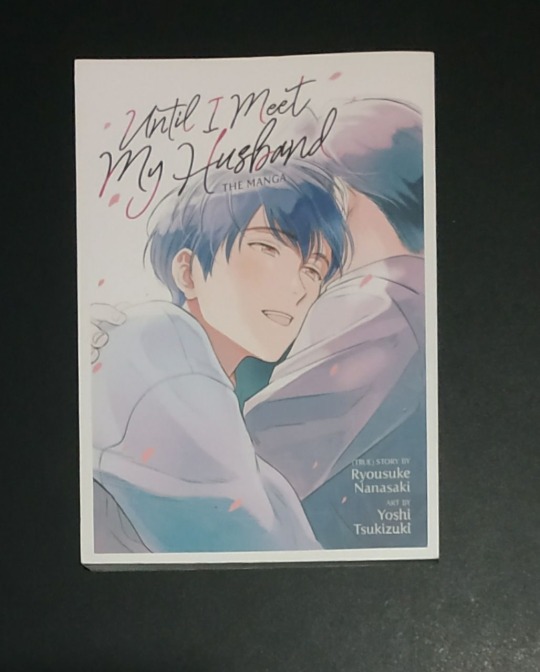
Japanese title: 僕が夫に出会うまで (Boku ga Otto ni Deau Made)
Story: Ryousuke Nanasaki
Art: Yoshi Tsukizuki
English publisher: Seven Seas Entertainment
Number of volumes: 1 (complete)
The peaks and valleys of finding true love.
(This review contains story spoilers.)
I’ve covered a number of series in this project that stray away from its genre focus - slice-of-life BL - in one way or the other. While Our Dreams at Dusk and I Think Our Son Is Gay both feature a man pining for another man, they don’t necessarily follow the typical BL plotline, and I like calling them “BL-adjacent” or simply LGBT manga instead. On the other hand, Cherry Magic isn’t technically slice-of-life as it revolves around a main character with a magical ability. I still chose to cover these series for this project because I wanted to write about them, and even if they didn’t fit into the mold of all the other series I’m covering, I still thought they were very good reads.
Until I Meet My Husband is another one of the titles that deviate from this project’s norm, though in a different way from the three series I mentioned above - this is the first (and only) manga I’m covering here that isn’t classified as fiction. This is based on a series of essays from Ryousuke Nanasaki that recounts his experiences as a gay man, all culminating into his wedding - which the book helpfully tells us is “the first religiously recognized same-sex marriage in Japan.” I mentioned the partnership system in my review of Restart After Growing Hungry, and I believe this is a variation that involves a Buddhist ceremony.
And indeed, the manga opens with this scene, with Ryousuke getting happily married to his husband - who coincidentally is also named Ryousuke, so I’ll be calling him Ryou when I talk about him later. While we already know going into the story that Ryousuke would be getting a happy ending - if the title doesn’t give it away, the cover and blurb definitely will - framing the main story with this wedding at the very start does set a much different tone compared to if it immediately began with his experiences as a kid. All of these flashbacks show a lot of challenging and often uncomfortable experiences that Ryousuke goes through, but knowing that they’re working towards a happy ending makes it a lot easier to root for him.

Of course, Ryousuke doesn’t have the benefit of knowing he’ll get a happy ending when he goes through these events, and indeed, it’s a sentiment that comes up quite often as he grows up and comes to terms with his sexuality. Each of the chapters of this manga roughly revolves around one of the men that Ryousuke either pines for or gets together with, and it’s through these unrequited loves and relationships that he comes to learn things about himself and his identity. I think this is the story’s strongest aspect, as the way it explores this identity development is very comprehensive, and it reaches many highs and lows that really gives Ryousuke’s situation a lot of depth. While part of this is because of the story’s context - this is a memoir, after all - the author still deserves a lot of credit for being able to convey all of this very effectively.
Take the first two men that Ryousuke falls for while he’s still in school - Tsukasa and Hase. In both cases, not once did Ryousuke entertain the idea of being gay; rather, he worded his frustrations as wishing he were a girl instead so that Tsukasa and Hase would be able to fall in love with him. At first, I thought this was going to lead into a discussion about dysphoria, but the story later says that this is simply Ryousuke being unable to accept the notion of a man falling for another man. Much of this rejection comes from how the people around Ryousuke treated him - he was bullied for acting “girly,” and seeing both of his unrequited crushes get girlfriends took a toll on him - and we even get a chapter ending where he resolves to fall in love with a girl instead.
But his experiences living together with Hase during their college years and dating around with other men to no avail do lead him to slowly accept his truth - he was gay, and he wanted a long-term relationship with another man. This leads to my favorite scene of the entire story, where he’s out for drinks with two friends, Eri and Asami, to console the latter for breaking up with her boyfriend. Ryousuke has a really interesting internal monologue here where he admits to himself that he doesn’t sympathize with Asami because she had the privilege of having a true relationship with the person she loved. With this scene being presented right after Ryousuke’s experiences with Hase, he surmises that while both of them were heartbroken, their heartbreaks were not the same at all.
Ryousuke ends up vocalizing all of these thoughts to his friends instead of keeping them bottled in, which leads to him coming out for the first time. Eri and Asami, being the fantastic friends they are, sympathizes with Ryousuke and gives him the long overdue opportunity to vent and share all of his feelings. A scene much later in the story shows Ryousuke being incredibly grateful that his first time coming out was to people who didn’t reject him, and he believes that if that conversation went sour, he might not have been able to reach his happy ending. I thought the way this scene was handled was really great, and it’s no surprise that it ends up being a turning point not just for Ryousuke’s character, but for the story as a whole.
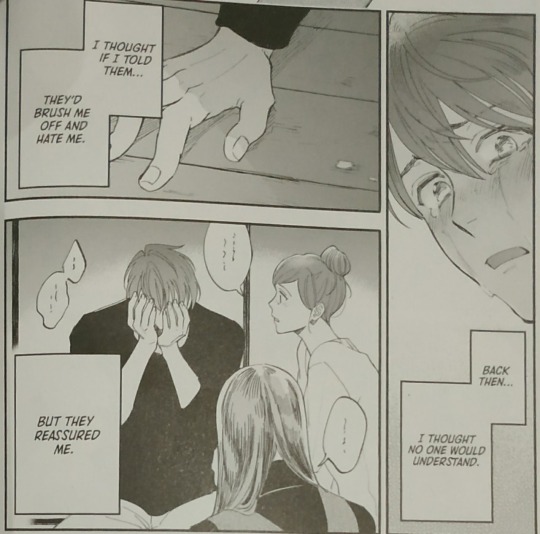
He becomes a lot more open about his sexuality after this pivotal moment, coming out to more people close to him as well as joining gay communities online and attending their public events. It’s in one of these events where he meets Takuma, and the two are seen to hit it off right away. This ends up being Ryousuke’s first serious relationship, and it even culminates in a mock wedding ceremony organized by Eri and Asami, which the story says was one of the things Ryousuke revealed to them when he came out to them - once again proving that they’re 10/10 friends. (It’s also revealed later on that this event was the spark that pushes Ryousuke and Eri to start a wedding planning business focused on LGBT couples.)
But I found it interesting how the story bookended this mock wedding with two very grave pitfalls in their relationship. Right before this scene, it’s revealed that Takuma has a lot of trust issues, going as far as hiding near their house to see if Ryousuke would bring another man home. The story does attribute this to his personal demons, and while Ryousuke admits that they fought a lot because of this, they did work together to overcome their issues little by little.
In the scene following the mock wedding, which takes place a year after the ceremony, it’s revealed that Takuma was unwillingly outed to his friends. Unlike Ryousuke, Takuma hadn’t come out to anyone yet by that point, and this is seen to destroy him inside as his friends ended up pushing him out of their group because of it. While Ryousuke tries to talk to him and help him go through it, Takuma ultimately decides that he doesn’t want to be seen as different and resolves to pursue a “normal” relationship with a girl.
This, of course, hits quite close to home for Ryousuke, as he had the same thoughts about wanting to be in a “normal” relationship many years prior. He’s seen to handle this breakup quite heavily, feeling very alone in the three months following the breakup, and only finding the strength to move on after what looks like a breakdown while he’s in a bus. This arc is definitely the most complex out of all the conflicts that Ryousuke faces throughout the manga, and I quite like how his previous experiences with Tsukasa and Hase almost built up to this relationship with Takuma. Ryousuke is said to have dated quite a number of guys between Takuma and his future husband, but I definitely understand why the author chose to highlight this relationship in particular for his memoir - it seemed very game-changing in more ways than one.

Thankfully, this is the last major hurdle that Ryousuke the manga character has to overcome before he finally meets Ryou. Funnily enough, their first meeting ends up being a one night stand, and they only reconnect a year later as Ryou was in a relationship back then. They end up getting together shortly after reconnecting, and soon enough, Ryou is proposing to Ryousuke in Tokyo’s pride parade.
The final chapter features the continuation of the wedding shown in the first few pages of the book, but right before these scenes, the story shows the two Ryousukes attempting to apply for marriage registration but unfortunately failing to do so. At first, I thought this was simply highlighting how Japan has a long way to go in terms of being LGBT-friendly, and while I think that’s still a factor, I’m surprised that the couple doesn’t react entirely negatively to this rejection. Instead, Ryousuke points out that their application was rejected because same-sex marriages weren’t legal “for now” - giving him hope that it was only a temporary no.
It’s with this hopeful message that Until I Meet My Husband closes with, and I think it’s a very fitting note to end on. Ryousuke went through a lot of hardships both in terms of accepting himself and in terms of finding love, but he knows that it’s because of these hardships that he was able to reach his happy ending. I think the story does a great job in conveying that, and despite being quite heartbreaking all throughout, I left the story with my heart full.
Random thoughts that I couldn’t fit elsewhere:
I also wanted to mention that the story does a good job in painting Ryousuke’s character in a realistic light, in that he himself has his own flaws that he had to work through. While the story could’ve framed Hase as the bad guy for being completely oblivious of what his friend was going through, it doesn’t fall into that trap and instead shows that Ryousuke is also making it hard for Hase because of how the former is reacting to the latter’s girlfriend. There were a few moments in the story where I found myself agreeing with the other party instead of Ryousuke, but I think that’s a good thing - this story isn’t meant to portray Ryousuke as the perfect example of a gay man, but as someone who had to overcome a lot of challeges both externally and internally.
The first bonus chapter shows Ryousuke coming out to his mom, which unfortunately doesn’t go as well as it did with Eri and Asami. She immediately thinks about where she went wrong in raising her son and urges him not to tell his father for fear of being disowned. She even goes as far as warning Ryousuke to take this “secret” to his grave. This is unfortunately a very realistic reaction, and I wouldn’t have been surprised if the story left it at that. Fortunately, this bonus chapter goes in a more positive direction when Ryousuke talks to his mom about his wedding seven years after that incident. While his mom had kept her word to not tell her father all this time, the wedding does mean that she had to inform him about it, and to both of their surprise, the dad doesn’t think much of his son being gay and simply accepts it. I’m not sure if this is the catalyst that turns the mother’s opinion around or just the last of many steps that she took in those seven years to accept her son’s sexuality, but it’s nice to see her come around.
The second bonus chapter is a lot more light-hearted, as it gives us a glimpse of Ryou’s point of view of the story. It’s revealed that his talk with Ryousuke at the bar was as much of a game-changer for him as it was for Ryousuke, as he had already given up on the idea of marriage once he realized he was gay. We also get a clearer idea of why that one night stand they shared (on New Year’s Day no less) was unforgettable for both of them, and it does a great job of showing that they really hit it off from the start.

Thanks for reading! Until I Meet My Husband was a change of pace for this project in more ways than one, and I really liked how upfront it was about these experiences as well as its underlying statements about LGBT rights in Japanese society. I have yet to read the memoir that this is based on, and I hear that there’s a lot more covered in the set of essays than what’s in this manga, so I can’t wait to grab a copy of that!
#Until I Meet My Husband#Boku ga Otto ni Deau Made#Ryousuke Nanasaki#Yoshi Tzukizuki#BL manga#LGBT manga#manga review#manga
14 notes
·
View notes
Text
Hello Friends,
Today is going to be a slow day at work, it's Republic Day in India and the majority of my co-workers (and customers) are Indian.
From Wikipedia: "Republic Day is the day when India celebrates the date on which the Constitution of India came into effect on 26 January 1950. This replaced the Government of India Act 1935 as the governing document of India, thus turning the nation into a republic separate from British Raj."
So I thought I would talk a bit about my sexuality. I mean, why not? The most recent data about sexual identity from the Williams Institute at UCLA says there are 13,042,000 LGBT people in the United States and the majority of them are bisexual.
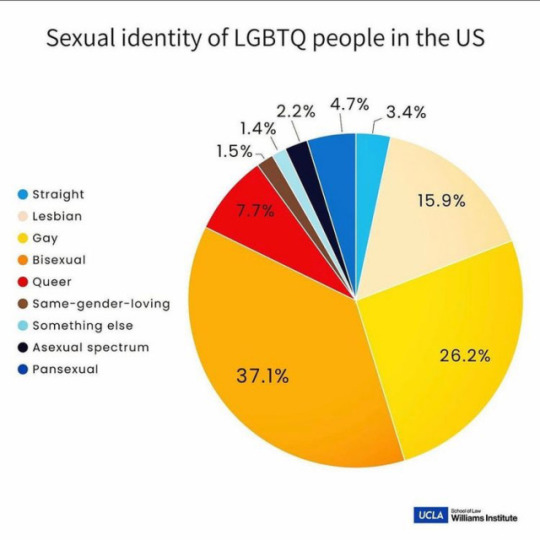
So here are some of my thoughts and experiences with bisexuality:
I knew, but didn't know I was bisexual my whole life. I was a child of the 1970s and a teenager of the 1980s, graduating from high school in 1989, and then college and eventually marriage in the 1990s.
So my queer representation while growing up was people like Liberace, Paul Lynde, and Charles Nelson Reilly. And I knew I wasn't like them.
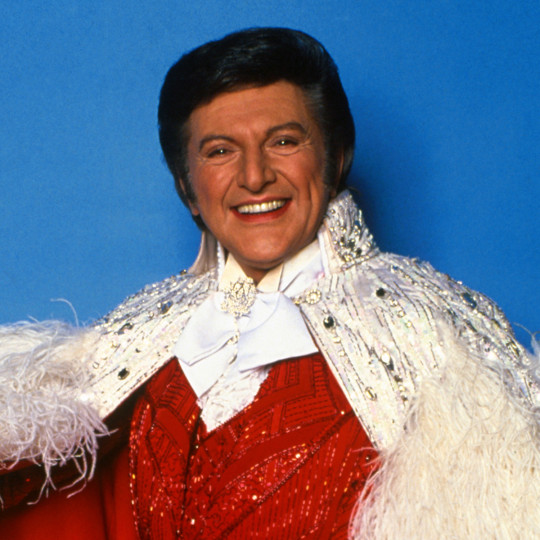
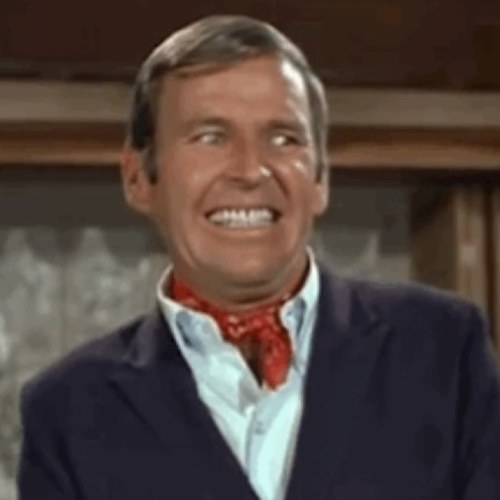

I saw them as effeminate clowns and I was a normal boy who played with Hot Wheels, Legos, and computers. And He-Man. And sometimes I would become aroused while playing with He-Man.
But I also liked women! Emma Samms, Heather Locklear, and Sheena Easton.
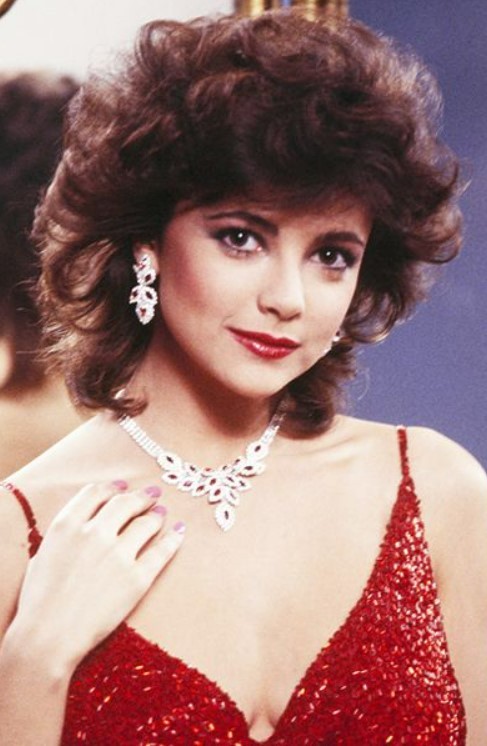
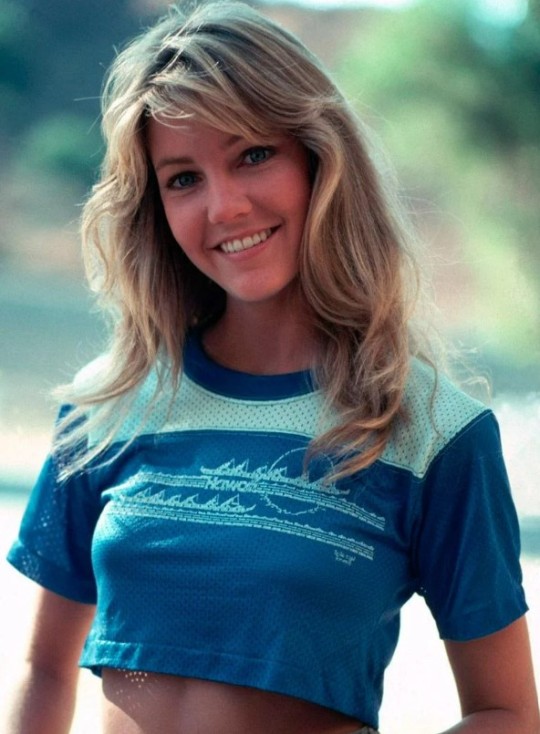
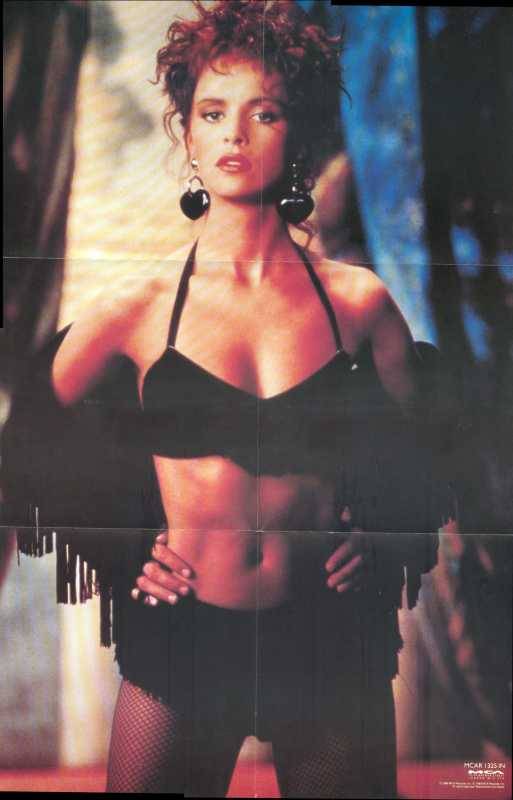
I had a picture of Heather Locklear on my wall that would arouse me. I knew I wasn't gay! But why would some men arouse me too?
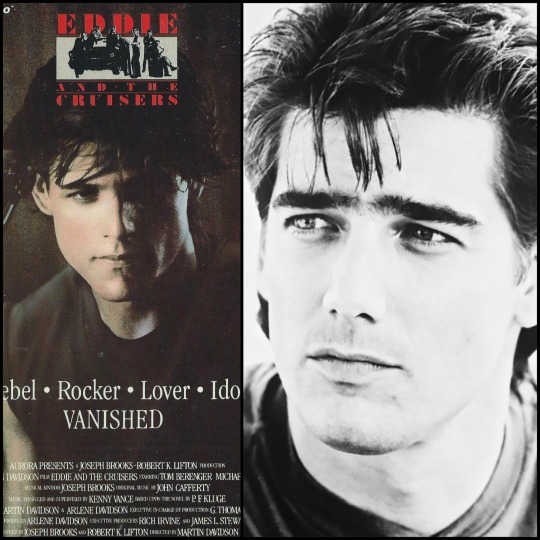
And thus, my confusion for most of my life. I even ended up in therapy and sex addicts anonymous, because I thought I was a sex addict. (I wasn't a sex addict.)
Here is the moment when I finally realized and accepted my bisexuality. I was actually at a Sex Addicts Anonymous meeting. We were socializing outside before the meeting, and I was having a conversation with another member about gay marriage rights. (I was for gay marriage rights and he was against.) And I was beginning to get very angry (on the verge of rage) and then internally I paused. I asked myself, "Dave, why are you getting so upset?" I answered, "Because you like dudes." I replied, "What?" And then every moment since childhood flashed before my eyes, every moment I was aroused by men. I liked men. I've been in denial that I liked men. I was in Sex Addicts Anonymous to curb the thirst for men. When all I really needed to do was learn to accept and love myself. And that moment was a lightbulb moment. I didn't even go to that meeting. I left and called my girlfriend. We met in a cemetery for a walk where I told her what happened. She thought I was breaking up with her. I told her no, that I still want to be monogamous with her, that I was just understanding and learning about myself. I expect later, when she did finally break-up with me, that being bisexual was a part of it.
Here is what I blame - yes, a society that looks down on the LGBT, forcing many of us into the closet or in denial. But also the lack of bisexual representation when I was growing up. I really didn't understand bisexuality until these past ten years. And particularly that we get to define our own sexuality.
And there ya go. That was the story I wanted to tell today.

5 notes
·
View notes
Text
Understanding LGBT+ and the Significance of Pride: Breaking Barriers and Fostering Acceptance
We'll be celebrating Pride this June. Curious? Learn more!
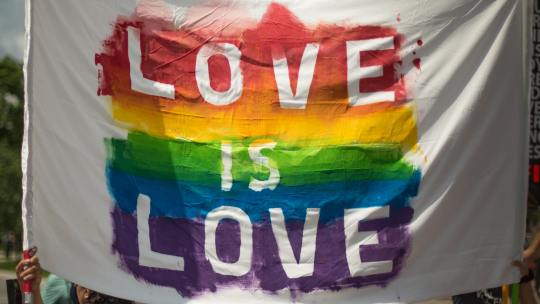
The LGBT+ community, encompassing individuals who identify as lesbian, gay, bisexual, transgender, and more, plays a vital role in our diverse society. However, despite significant progress in recent years, discrimination and legal barriers persist, hindering many from leading authentic lives. HiVid supports our diverse customer base and we want to introduce readers to the concept of LGBT+ and Pride. Continue on to learn more.
What is LGBT+?
LGBT+ is an acronym that represents the diverse spectrum of sexual orientations and gender identities. Here's a breakdown of the terms:
Lesbian: A woman who is emotionally, romantically, or sexually attracted to other women.
Gay: A term typically used to describe men who are attracted to other men, though it is also inclusive of women.
Bisexual: Individuals who are attracted to both males and females.
Transgender: People whose gender identity differs from the sex assigned to them at birth.
Plus (+): This symbolizes the inclusion of all other sexual orientations and gender identities that are not specifically represented by the aforementioned terms, such as pansexual, non-binary, and queer.
Others may use different acronyms or apply a different description to these terms. Each person has the right to decide for themselves which labels, if any, apply to them and how they should be used. If you're not sure, ask!
The Significance of Pride
Pride, celebrated globally during the month of June (often referred to as Pride Month), holds immense significance for the LGBT+ community. Here are a few reasons why Pride is important:
Visibility and Acceptance: Pride events provide a platform for LGBT+ individuals to express their identities openly and authentically. It helps promote visibility, fostering a sense of acceptance and understanding within society.
Community and Support: Pride celebrations bring together people from various backgrounds, creating a strong sense of community and solidarity. It allows individuals to connect with others who share similar experiences and challenges, offering much-needed support.
Historical Milestones: Pride commemorates various achievements in the quest for recognition, acceptance, and fair treatment. In the United States, the Stonewall Riots of 1969, a series of protests by LGBT+ individuals against police brutality and oppression, is celebrated during Pride. This event marked a turning point in the fight for LGBT+ rights and serves as a reminder of the progress made and the work that still lies ahead. Other countries may have people, dates, or events highlighted during Pride.
Discrimination and Legal Barriers
Unfortunately, discrimination against LGBT+ individuals continues to persist worldwide. While progress has been made in some regions, many laws and societal attitudes still prevent LGBT+ individuals from living their lives authentically. Some common examples include:
Criminalization: In many countries, consensual same-sex relationships are still criminalized, leading to persecution, imprisonment, or even capital punishment for LGBT+ individuals. Transgender and self-expression may be against the law, particularly in religious districts.
Employment Discrimination: LGBT+ individuals often face discrimination in the workplace, ranging from harassment and unequal treatment to denial of employment opportunities based on their sexual orientation or gender identity.
Lack of Legal Protections: In many places, there is a lack of comprehensive legal protections against discrimination and hate crimes targeting LGBT+ individuals, leaving them vulnerable and marginalized. For instance, some countries won't allow partners to make legal decisions for their loved one or refuse to permit an LGBT+ couple to adopt children. Others are refused cohabitation, marriage licenses, and other freedoms most straight, cisgendered people can take for granted.
Conclusion
Understanding the LGBT+ community and the significance of Pride is crucial for fostering inclusivity and acceptance. Pride celebrations serve as powerful reminders of the progress made in the fight for equality while highlighting the ongoing challenges that the LGBT+ community faces. By recognizing and challenging discrimination and advocating for change, we can strive towards a society that embraces diversity and ensures that everyone, regardless of their sexual orientation or gender identity, can lead authentic and fulfilling lives.
2 notes
·
View notes
Text
LGBTQI+ Rights in Guinea-Bissau 🇬🇼
LGBTQI+ rights in Guinea-Bissau are more progressive than other West African states.All type of sexual orientations are legal.But non-heterosexual union and households headed by queer couples are not eligible for the same legal protections available to heterosexual couples.Same-sex marriages are not legally recognized by the state.LGBTQ+ people can not adopt a child.
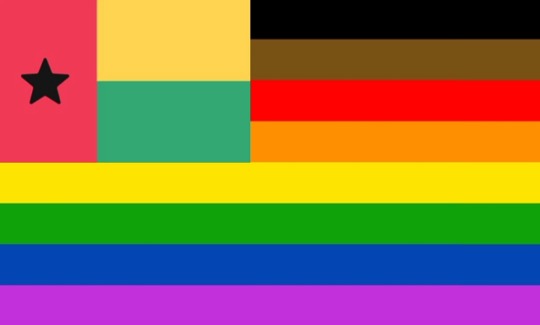
Inclusive LGBTQI+ pride flag of Guinea Bissau
Legality of Homosexuality
Homosexuality was first criminalized in Guinea Bissau under the Portuguese Colonial Penal Code of 1886.This penal code remained in force after the independence of Guinea Bissau.In 1993 Guinea Bissau decriminalized homosexuality with the enactment of a new code (Law-decree No. 4/93) which contains no provisions, criminalising private consensual sexual activity among LGBTQ+ people.
Public Opinion,Social Condition
Comparing to other West African & African Muslim countries, Guinea-Bissau is more tolerant of diverse sexuality.According to US Department of States report on Human rights claimed that, Of 19 African countries surveyed in 2010, Guinea Bissau was one of the most tolerant country on homosexuality. According to the survey 9% Bissau Guinean said that, homosexual behavior was morally acceptable,with 15% percent people said that, it was not an issue in their country.
In December 2008, Guinea-Bissau signed the "United Nations Statement on Human Rights, Sexual Orientation & Gender Identity", which supports decriminalization of homosexuality and transgender identity.
US Department of State report of 2012 found no violent incidents or rights abuses targeting individuals based on their sexual orientation or identity.There was no official discrimination based on sexual orientation or gender identity in employment or access to education and health care. However, according to government guidelines for civil servants's housing allowances, only heterosexual married couples were entitled to family-size housing, while same-sex couples received the single person allotment.In Guinea Bissau, social taboos & religious morals sometimes restricted freedom of expression,human rights of sexual minority.
According to US Department of State 2011 Human Rights Practices Reports stated that ''Guinea Bissau's laws grant asylum or refugee status for the refugees. The government has established a system for providing protection for refugees.The government provided protection against the expulsion or return of refugees to their countries, where their lives or freedom would be threatened.It is also stated that ''There were no restrictions on refugee’s ability to work provided they had a valid refugee card.Persons holding official refugee status were allowed to public services including education,healthcare & the land.
Discrimination,Violence
There's no law that prohibits discrimination in employment,education,housing,health & public services on the basis of sexual orientation or gender identity. Guinea-Bissau's LGBTQ+ citizens may face discrimination at employment,housing, education,public or private spaces.
But US Department of State report of 2011-2012 found no societal violence or discrimination against people with HIV/AIDS.
In 2018, a local NGO director stated that there were some cases of violence targeting people based on their sexual orientation or gender identity and stressed that Guinea-Bissau lacks legal protections for LGBTQI+ people.
LGBTQ+ Association
There are few rights group & NGOs working for advocacy of sexual minorities & their wellbeing. Big Mama Fountain (for short Big Mamas), a LGBTQ+ rights advocacy group was started by gay men and trans women.Vadinho Da Costa is the leader of this rights group.Big Mama Fountain fights for visibility & inclusion of LGBTQ+ in Guinea Bissau.The group host a meeting in every Sunday for meet-up,get together.In past years, Big Mamas organized country's first “Miss Gay” beauty pageant.In 2019 the country hosted the first LGBT pride with queer community & their allies.
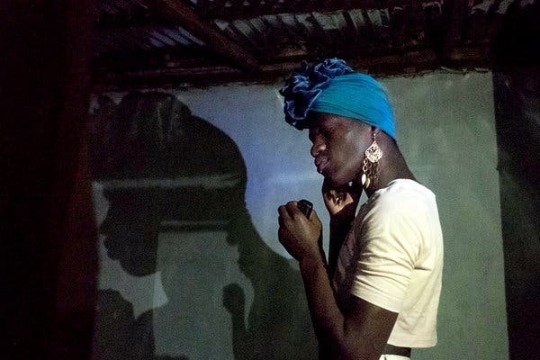
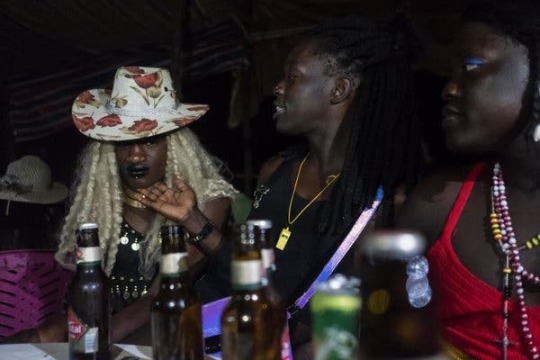
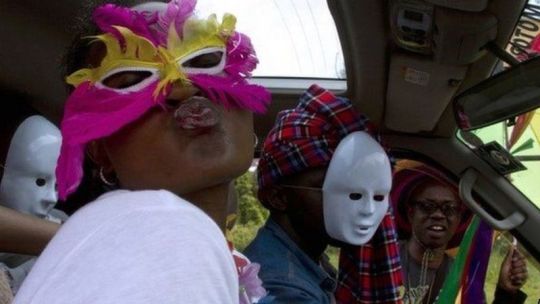
LGBTQI+ party in Guinea Bissau
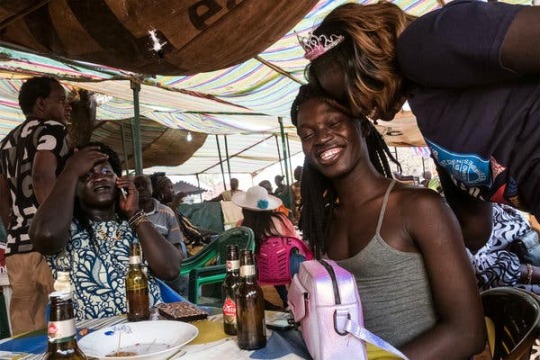
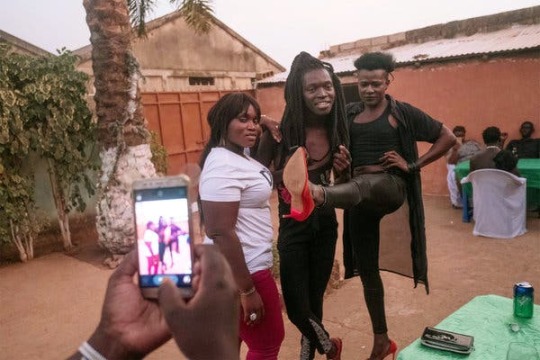
LGBTQ+ pride celebration
ENDA Health, a West African based org. works for improvement of community health & human rights.The organization provides counselling,sexual healthcare services for most vulnerable communities.
Recognition of Gender Identity or Third gender/sex
Guinea-Bissau does not legally recognize any gender identity & does not permit someone to change their gender.
In Guinea Bissau, Portuguese-derived Creole language has no distinction between gender pronouns.Thus Cis-Men,Cis-Women, Transgender people are referred to in the masculine Portuguese pronoun “he” which is considered gender neutral.
Summary:
Same-sex sexual activity - ✔️ legal since 1993
Equal age of consent - ✔️
Recognition of same-sex marriage - ❌
Recognition of same-sex union - ❌
Anti-discrimination laws in hate speech and violence - ❌
Anti-discrimination laws in the provision of goods and services - ✔️/❌ [ambiguous]
Adoption by LGBTQI+ people - ❌
Right to change legal gender - ❌
LGBTQ+ people allowed to serve openly in the military - ✔️
MSMs allowed to donate blood ✔️ [citation needed]
2 notes
·
View notes
Text
The Pink Line: Journeys Across the World's Queer Frontiers
Mark Gevisser
Publisher: Farrar, Straus, and Giroux
Genre: queer theory, politics
Year: 2020
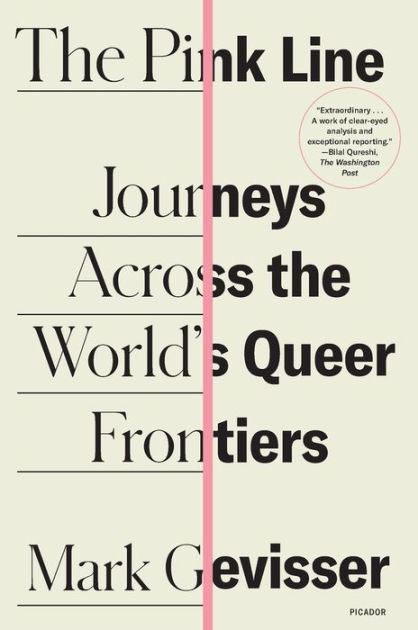
I just finished The Pink Line: Journeys Across the World's Queer Frontiers by Mark Gevisser, and I am absolutely blown away. I picked this book randomly because I was waiting for Wyatt's recommendation "Gender Madness" to come in from the library.
This book should be essential reading for all queer people, especially people in the US. Gevisser is a white gay South African who set out to find the "pink lines" of queer rights. He starts close to home, following the story of a trans Malawian refugee in South Africa, a gay Ugandan refugee in Nairobi, lesbians in Cairo, a trans woman fighting for custody in Moscow, the trans youth of Michigan, lesbians in Mexico and the communities of kothis in rural India. He talks to a gay Israeli dating a Palestinian, interviews genderqueer Filipinos—the scope of this book is truly remarkable.
This book has such an impactful insight on queerness around the world, and has fundamentally changed me. Although it's not the point of the book, Gevisser really highlighted for me how America and the West is colonizing queer spaces by forcing the LGBT label onto communities that already had indigenous varying gender expressions and how in the African nations, both Christian organizations and western LGBT organizations are each harming the community through their respective agendas.
Gevisser is highly aware of his status as a white man, and although gay, from South Africa where gay marriage has been legal since 2005 (it really blew my mind to discover just how far behind the US is on a lot of these issues), and approaches his work with a level of compassion that I find comforting. He removes himself from the narrative as much as possible, only commenting to reflect on how his own identity might be shading his opinions and experiences, but the way in which he describes the people in this book shows the extent of his care.
Hands down the most important and impactful queer theory book I’ve ever read
~Update~
I really need to sleep but I’m never gonna shut up about this
Also it was published in 2020 and he interviewed them for 5 years so it’s super current. Like 2015-2020
~Update 2~
Jk I’m back my mind is racing
Another really poignant underlying theme for me is that universally, all of the refugees felt one thing: they wanted to go home. They wanted, more than anything, the ability to be themselves in their own culture. The refugees of Canada, the US, the Netherlands, Nigeria, while grateful they were safe, without exception every single one wanted to go home. And it really challenged the narrative for me that people always want to come to the West. I never believed the conservative talking point about people coming to the US to take your job and steal your livelihood but this pushed back on the assumption I didn’t even realize I had that the West was at the forefront of the “pink line” as Gevisser puts it. While the US does take a prominent role in the conversation (he talks about the bathroom bills and sports conversations started in the US around trans youth) and how the LGBT label became de facto in a lot of places because of the prominence of American media, the West is such a non-entity in most of these peoples lives. They don’t want to go anywhere they want to stay where they are and be accepted.
storygraph | bookshop.org | local houston
★★★★★★★★★ essential reading stars. I listened to it but I just bought a copy for my personal library.
#book review#queer theory#queer history#the pink line#mark gevisser#required reading#political science#favorite#profound#reference#author of color#author african#featured#2020#farrar straus and giroux#queer#nonfiction#macmillan
3 notes
·
View notes
Text
Officially, the story from the stage was that the rainbow coalition needed to stick together like glue against the anti-gender backlash currently being waged by Orbán, Putin, Erdogan and others: no queer left behind! For these self-styled strongmen, “gender”, vaguely defined, is a strategically useful symbol for everything terrible about the decadent West.
The original political target of Orbán Fidesz’s party was liberal feminism and gay rights. But with the official addition of the T to the LGB internationally in the last decade, and the sudden Western shift towards extreme policies such as self-ID and the medicalisation of trans-identified youth, not to mention the Western presentation of transactivism as a logical extension of feminism, a golden opportunity emerged to give added plausibility to Fidesz’s tale of crazy identity politics and moral corruption. Now they could juice up their disparagement of “gender” with tales of young girls being made to believe they were boys, and predatory males in women’s changing rooms. These days, I was told, the biggest focus of Orbán’s anti-gender campaign is extreme transactivist demands imported from the West and their consequences.
Inevitably a polarised situation has emerged, with both sides insisting the T be lumped together with the LG and B, for good or ill. On one side, Fidesz use the extremes of Western transactivism to justify incursions on the rights of women, gays, and the sex-non-conforming generally. And on the other, in the name of solidarity, Hungarian and Western progressives insist there is no difference between these extreme demands and more staid requests like being able to teach schoolchildren about homosexuality or demanding the right to gay marriage.
Reading between the lines, testimonies at the EL*C suggested that a similar dynamic is taking place elsewhere in the former Eastern bloc. A charismatic Albanian lesbian activist, Xheni Karaj, told the conference that she had visited the UK and worked in some capacity with Stonewall towards a campaign for greater acceptance of LGBT+ parenting. Going back to Albania, the idea had got out that she wished to replace the words “mother” and “father” with “Parent 1” and “Parent 2”. In a highly conservative country such as Albania, this notion caused a huge scandal, and Karaj became the subject of severe abuse and harassment because of it.
Karaj was clear on stage that she had never intended to suggest replacing the word “mother” with anything else. I believed her. But what she didn’t also say was that, only last year, Stonewall suggested doing precisely this in the UK. The idea was incendiary enough to many when made over here — let alone in a context like Albania, where religious leaders have a large influence, the family is venerated, and homophobia and misogyny is entrenched.
And Albania is not the only place where the creative projects of bored rainbow bureaucrats from North London are being used to make mischief. In his annexation speech last week, Putin said “no more Parent 1 and Parent 2, only mother and father”. A few days earlier, a 2019 speech by the new Italian leader Georgia Meloni went viral on Twitter — and was retweeted not just by conservatives but also by some gender-critical feminists who seemed to assume they had found a fellow traveller. “I can’t define myself as Italian, Christian, woman, mother,” she complained. “No. I must be Citizen X, Gender X, Parent 1, Parent 2. I must be a number.” Sound familiar?
Left-wing gender-critical lesbians like those I met in that Budapest bar are stuck in the middle of all this, a means to everyone else’s ends. The state paints them as deviant and anti-family to bash the liberals, while progressives in Hungary and their Western supporters demand that they pretend that their interests perfectly align with the rest of the rainbow. If lesbians nonetheless insist, perfectly sensibly, that female biology makes a difference to their political interests as lesbians, they are treated as somehow in league with the far-Right.
Kathleen Stock, Real feminists don’t need strongmen
2 notes
·
View notes
Note
really? you don't think that in a few years being a man or woman will feel like an outdated thing? because i think it's very likely
There's no way, at least, not in the US, where I live. We don't even have comprehensive sex-ed, and there's a huge debate here about whether or not it's "appropriate" to teach children that LGBT people exist. This is the current state of the US with regard to gender and LGBT issues:
Only 58% of Republicans and Republican leaners in the US think that homosexuality should be accepted. Same-sex marriage has only been allowed in all 50 states since 2015. Only about four-in-ten U.S. adults (38%) say that greater acceptance of people who are transgender is generally good for our society, while 32% say it is bad and 29% say it is neither good nor bad. 65% of conservative Republicans say acceptance of trans people has been bad for society. One study found that most participants (73%) were taught traditional gender roles in their childhood home, and 89% had heard negative opinions about non-conformity. That same study found that 13.6% of heterosexual participants reported they had been bullied for gender non-conformity as did 42.7% of LGBTQ-identified individuals. Nearly 1-in-4 (23.6%) participants believed that male cross-dressing is wrong.
Plus, opinions on issues of gender aren't really changing. Half of Americans say they would feel very or somewhat comfortable using a gender-neutral pronoun to refer to someone if they were asked to do so, but 48% say they would feel very or somewhat uncomfortable doing so. These numbers are virtually unchanged since 2018. A majority of U.S. adults (56%) believe that whether someone is a man or a woman is determined by the sex they were assigned at birth, with 41% saying that a person’s gender can be different from the sex they were assigned at birth. These numbers are unchanged since 2017.
On a policy level, Montana, Tennessee, and Arkansas all passed laws last year that require schools to give families advance notice of lessons on gender identity and sexual orientation and allow parents to opt their children out.
Just two months ago, Alabama's governor Kay Ivey signed two anti-LGBT bills into law. One criminalizes gender-affirming surgeries for trans youth, and the other is a ‘Don’t Say Gay’ bill that prevents teachers from teaching "divisive concepts" in schools and only allows people in schools to use the bathroom of the gender listed on their birth certificate. There's just no way that in 2030, Kay Ivey is suddenly going to be like, "actually, I feel like being a man is outdated, let's just get rid of gender in Alabama and call it a day."
People are terrified of gender norms being broken. I know some people who are okay with binary trans people but not with nonbinary people because they're that uncomfortable with people who are gender non-conforming. It's going to be a real uphill battle to get those people to let go of their misogynistic views, much less to get them to accept the existence of trans and nonbinary people, to get them to break down their own preconceived notions about what gender means, to become comfortable with gender non-conformity in others, and finally to become comfortable with gender being "outdated" and falling by the wayside on a societal level, meaning that they will also lose their personal relationship to it. Even in big cities that are liberal, that's a huge ask. It's definitely not going to happen in Montana or Tennessee or Arkansas or Alabama or Florida. But those are the steps it would take to get to the point where we can just "get rid of gender".
Certainly, I think there's a growing acceptance for gender non-conformity and people who feel like gender is outdated, particularly among Gen Z, where about 5% of them identify as transgender or nonbinary. But that's certainly not a representative population for the rest of the US or even the rest of Gen Z, and it's definitely not a representative population for the rest of the world.
2 notes
·
View notes
Text
It's Time for 'LGB' and 'T' to Go Their Separate Ways
Brad Polumbo
26 Oct 2019
---------------------------------------------------------
The growing rift between increasingly radicalized transgender-rights activists and the lesbian, gay and bisexual (LGB) communities has finally come out into the open. This week, Europe’s biggest LGBT-rights organization, the London-based Stonewall charity, was publicly accused of subordinating LGB rights to the group’s increasingly single-minded goal of replacing sex with gender as a marker of identity. As Helen Joyce recently wrote in Standpoint, “Stonewall went all in for gender self-ID. Its online glossary now describes biological sex as ‘assigned at birth’ (presumably by a midwife with a Hogwarts-style Sorting Hat). ‘Gay’ and ‘lesbian’ now mean same-gender, not same-sex, attraction. ‘Transphobia’ is the ‘fear or dislike of someone based on the fact that they are trans, including the denial/refusal to accept their gender identity.’ At a stroke, anyone who declares themselves exclusively attracted to people of the same sex has become a bigot.”
As a gay man who lives in the United States, I have no direct stake in Britain’s intra-LGBT politics. (“LGB/T” might now be a more apt term.) But I am surprised that it has taken this long for such a formal breach to occur. The same pressures have been building everywhere, and it was only a matter of time before someone acted on them.
After the U.S. Supreme Court legalized gay marriage nationwide in the landmark 2015 decision Obergefell v. Hodges, many believed the fight for gay rights would begin to wind down. Yet that didn’t happen. Instead, the LGBT-advocacy sector simply redirected its available staff, fundraising and rhetoric to other projects. I know this because I saw this happen, both as a university student, gay man and equal-rights advocate.
LGBT flag designed by Daniel Quasar.
In a relatively short period of time, the gay-rights movement fused with more radical campus-based gender and identity-politics movements, to become the compound movement now known as “LGBTQ+”—lesbian, gay, bisexual, transgender, “queer” and more. Even many people within the movement now have trouble keeping up with all the new subcategories contained within that plus sign. One version of the rainbow flag unveiled last year has 11 different colors on it. The creator, Daniel Quasar, identifies as a “queer non-binary demiguy” whose pronouns are “xe/xem/xyr.” None of these bizarre neologisms have any resonance to those of us who joined the gay-rights movement simply to affirm and protect the basic rights of people to be who they are and love who they choose without stigma or legal sanction. We’ve been forced to watch the simple moral logic of non-discrimination be transformed into a self-parodic alphabet soup of invented identities.
Over the last few months, a Democratic presidential debate focused on LGBT issues was highjacked by a rogue transgender woman who shouted slogans about trans rights while the candidates and moderators nodded along robotically. Presidential candidate Joe Biden has called for unisex prisons, a policy that, if implemented, would lead to the rape of female prisoners. Senator Kamala Harris, another Democrat running for president, even came under fire for daring to suggest that pregnancy is a “women’s” issue—since it is now fashionable to highlight the fact that trans men and the “non-binary” also can bear children.
In his recent Netflix special Sticks and Stones, comedian Dave Chappelle nearly got himself canceled for pointing out the growing estrangement between the LGB and trans communities (whom he collectively referred to as “alphabet people”). This being a forbidden topic, it goes without saying that the ultra-woke outlet Vice ran a scathing review of the special, later echoed by other progressive outlets, such as Salon. LGBT activists chided Chappelle for his alleged transphobia on Twitter, despite the fact that viewers themselves gave the show a 99% rating. This is now a typical pattern: Whenever someone runs afoul of gender orthodoxy, the official pundit class has to pretend it’s appalled, a difficult conceit to sustain when sites such as Rotten Tomatoes make popular assessments a matter of public record.
Chappelle used the analogy of a car trip shared by passengers G, L, T and B. The Gs are driving, with the Ls in the passenger seat. The Ts are in the back. “Everyone in the car resents the Ts,” Chappelle says. “The Ts are making the trip take longer.” Trans comedians and activists, who’ve become accustomed to pride of place in the intersectionalist hierarchy, were up in arms. But Chappelle made it abundantly clear that he had no animus toward anyone in the LGBT community: The target of his satire was not any one group, but the increasingly ridiculous conceit that all of these “alphabet people” are happy fellow travelers. LGB rights and T activism have been revealed to be unnatural bedfellows, and it’s inevitable that, as is happening in Britain, they will go their separate ways.
Gays, lesbians and bisexuals all have something obvious in common: same-sex attraction. This is an alternative sexual orientation that, to some extent at least, shapes our experiences and alters our life outcomes. We typically identify with our biological sex—and in fact, sometimes have spent many years feeling trapped by it. To be gay is to understand that sex is set at birth. My sexual attraction, likewise, is based on hard-wired factors beyond my control.
Transgenderism is a separate concept. While homosexuality leads to obvious differences in real-life behavior, transgenderism offers a categorial redefinition of what it means to be a man or a woman. As Joyce describes it, a “gender identity” is a quasi-spiritual concept—almost like a soul—that is “something between an internal essence, knowable only to its possessor, and stereotypically masculine or feminine appearance and behavior.”
Gay rights activists simply want society to accept their different ways of living and loving—since gay men and lesbians pursue romantic interests and build families in ways that are at odds with conventional heterosexual expectations. Followers of radical gender theory, on the other hand, demand that we all reject our basic understanding of biological sex in favor of a recently conceptualized abstract notion of human identity.
Of course, the idea of transgenderism per se isn’t new—nor is the (perfectly valid and just) demand that people with gender dysphoria be treated with decency and respect. But the original form of this demand was based on the far more reasonable idea that gender is a social construct distinct from biological sex. It was not disputed that a transgender woman is a biologically male human who identifies with the social norms traditionally associated with woman. But in recent years, transgender activists have demanded that sex and gender be conflated, and that the very idea of innate biological differences be pushed into the background. At the most absurd extreme, there are now athletes and scholars who seriously suggest that being male offers no competitive physical advantages over being female, a proposition that even small children know to be unhinged.
One of the unsettling elements embedded within this advocacy is the demand that women—lesbians, more specifically—make themselves sexually available to trans women, on the far-fetched theory that gender identity, not sex, is the real source of human attraction. As Jonathan Best notes, Stonewall now has defined “homosexuality” as referring to “someone who has an emotional romantic and/or sexual orientation towards someone of the same gender.”
“Did you see what happened there?” Best writes. “Same-sex attraction has become same-gender attraction. This might seem academic. But take a moment to reflect on what it means in the context of Stonewall’s affirmation of gender identity. Stonewall is asserting that lesbians are attracted to anyone with a female gender identity, whether that person is biologically male or female. This turns gay and lesbian desire into transphobia. I’m a gay man—I’m attracted to male bodies—not people performing male gender roles. And, yes, that means I like male genitalia. (I really like it). Trans activists argue that my sex-focused homosexuality is transphobic. I’ve seen trans activists compare non-trans inclusive gay desire to racism and describe gay sexuality as ‘genital hang-ups.’”
In the United States, the Democrat-controlled House of Representatives has passed the Equality Act, a so-called LGBT rights bill that outlaws discrimination on the basis of sexual orientation and gender identity. That is a noble goal that would seem to be in keeping with America’s larger civil-rights legacy. But the Act explicitly redefines biological sex under federal law according to self-defined gender identity—so it easily could allow for a whole host of adverse consequences. And as we have seen in Canada, where a trans woman tried to leverage human-rights law to force immigrant aestheticians to wax her “female” scrotum and penis, the victims of this movement tend to be women.
Even under current U.S. law, Title VII of the Civil Rights Act serves to outlaw discrimination on the basis of “race, color, religion, sex, or national origin.” Activists are arguing that transgender identity is protected under the law’s reference to “sex,” even though “gender identity” is mentioned nowhere in the law. Trans activists also are demanding government support for policies that subject gender-confused children to potentially sterilizing hormones and other aggressive therapies. Their rights are being sacrificed on the altar of gender self-identification as well.
The redefinition of sex as gender is a step that most people—even the most well-meaning and humane members of society—simply will never accept, no matter what laws activists manage to get passed. And the effort to ram this doctrine down the throats of ordinary people will tarnish any movement that insists on such mantras. So long as self-described “LGBT” activists demand that a male with gender dysphoria is “really” a female, many otherwise accepting people will remain opposed to, or at least skeptical of, the wider movement.
As a right-of-center journalist, I know dozens of young conservatives, particularly women, who are completely open and accepting of their gay and lesbian friends, and supportive of gay rights; but simply won’t accept that a man can be a woman, even if they are forced to give lip service to this mantra as a condition of passing sensitivity-training courses or using social media. Many progressive news outlets were aghast when new polling showed that “young people are growing less tolerant of LGBTQ individuals.” But a closer look into the survey’s methodology revealed that on most questions, they were asked about “LGBTQ people,” not gay people. Support for “equal rights” remained steady, but comfort around “LGBTQ” people has declined. Notably, the survey found that comfort levels around “a same-sex couple holding hands” remain virtually unchanged. Although it’s fashionable to pretend otherwise, it’s the T that’s the issue.
To repeat what I wrote above, transgender people deserve to be treated with dignity and respect. And I have spoken out strongly against anti-trans policies (such as a ban on trans soldiers in the U.S. military). To say that these two causes—LGB and T—should separate isn’t to say that one has value and the other does not. I am simply noting that their goals are at odds. As gay writer Andrew Sullivan recently wrote in New York magazine:
The truth is that many lesbians and gay men are quite attached to the concept of sex as a natural, biological, material thing. And gay men are defined by our attraction to our own biological sex. We are men and attracted to other men. If the concept of a man is deconstructed, so that someone without a penis is a man, then homosexuality itself is deconstructed. Transgender people pose no threat to us, and the vast majority of gay men and lesbians wholeheartedly support protections for transgender people. But transgenderist ideology — including postmodern conceptions of sex and gender — is indeed a threat to homosexuality, because it is a threat to biological sex as a concept.
Canadian writer Sky Gilbert, a gay writer, made a similar point in Quillette, noting that transgender activists increasingly are telling young children who may grow up to be gay or lesbian that their effeminate or butch expression is actually a sign of a transgender soul trapped in the wrong body: “Until the latter decades of the twentieth century, if parents caught their son playing with dolls, they might suspect he was gay. And if he grew up to be an adult with same-sex desire, he would go to a psychiatrist to seek help. Now that we have (spuriously) separated sexuality from gender, a parent who catches his boy playing with dolls will take a trip to a psychiatrist—but this time for different reasons: Little he might be a little she.”
The idea of biological sex is at the core to the gay identity—of my gay identity—and the stereotypical definitions of gender expression that the transgender movement peddles ignores the existence of men and women who happen to express their gender in unorthodox ways without actually being transgender. Most of these people simply grow up to be gay. To demand that these children be instead labeled gender dysphoric is essentially a form of woke conversion therapy. We gays experienced quite enough of that phobic behavior from the socially conservative right. We have no interest in getting force-fed another serving from the progressive left.
5 notes
·
View notes
Text
Part 7: Nigeria and Angola
Keep an eye out for a post soon, I have an announcement I want to make about the pride month history project I'd like to make.
(Should I be leaving my name on these things?)
-Soul
Nigeria
Homosexual activity is illegal in Nigeria, but it hasn’t always been like that. In January of 2014 Nigerian president Goodluck Jonathan passed a law known as the Same-Sex Marriage Prohibition Act, or SSMPA. The law bans every part of LGBT+ life, even just talking positively about it(similar to Russia). Supporters of this bill say it protects their culture, which is baseless if you look at African history(Sources 1-4). Nigeria itself was not accepting of gay-relationships in pre-colonial times, but it was accepting of lesbian ones according to a paper by Chan Tov McNamarah. (It is important to note that when making criminal laws against homosexuality the excuse is often that homosexuality was brought by western cultures)
Prior to SSMPA, Nigeria queer culture was often socializing in clubs, parties, and other similar things. These clubs were often private and hidden to protect themselves and the people in them from discrimination. Some methods to protect these clubs were that in order to enter you had to be vouched for by someone already approved, and that in order to find them you either had to identify the owner or learn by word of mouth. The scene inside was very social, and the drag scene specifically was doing very well.
After SSMPA, gay weddings(which were already hidden and private) became even more difficult to have, and cohabitation that was used as an alternative to marriage, became dangerous. Partners were no longer able to trust their neighbors to respect their privacy, and now that SSMPA existed would get called in by those neighbors. Violent homophobia began to rise as well, safe havens being raided, and people being pulled from their houses and beaten. Nonetheless, the queer scene in Nigeria continues to exist. Only now, the locations change and modern technology helps to keep it private.
Sources: 1 2 3 4(cw below) 5 6 7 8
Source 4 contains the slang version of the N slur, but it is from a black run website and I used it as a reference so I added it as a source. If any black person wants me to remove it as a source I will. (I specifically use the word black because Africa is a very diverse continent with many different colors of person.)
Angola
In January 2019, after gaining their independence as a country in 1975, Angola made its first new penal code. While making this code the Angola Parliament made a vote remove a law commonly interpreted as an anti-gay law. In addition, they also banned discrimination against people based on their sexuality.
This amendment was not unexpected, as in 2013 they had granted legal status to an LGBT organization called Iris Angola. This organization had often complained about discrimination against their employees by health care.
Additionally, in 2016 Angola held its first LGBTIQ festival called FESTÍRIS, which gathered the LGBT+ community, allies, and others, to raise awareness to LGBT+ issues. In 2019, they celebrated the laws and reflected on the history of their chosen day, May 17th(International Day Against Homophobia, Biphobia and Transphobia)
Despite all of this, and all of the celebration, the new penal code only went into effect in February of 2021.
Sources: 1 2 3
I gave myself limited time to make this one so there are less sources, and it is shorter.
Part 1
Part 6<-->Part 8
Please support this project by following and taking this survey about queer identities and experiences.
Lmk in replies if you want to be added to the tag list!
#project unknowing#lgbt#lgbtq#lgbtqia#lgbtqia+#queer#pride month#history#current history#recent history#politics#world news
5 notes
·
View notes